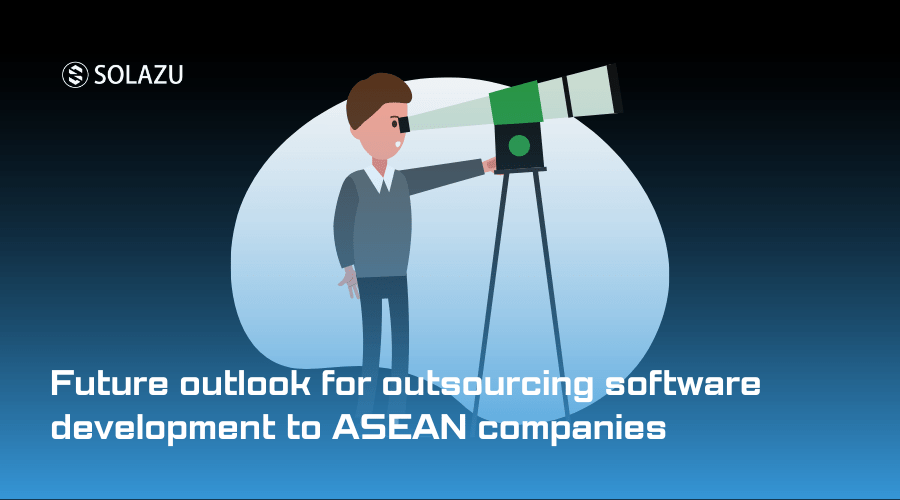The ASEAN region has emerged as a popular outsourcing destination for software development due to its skilled workforce, lower labor costs, and favorable business environment. As technology continues to advance and businesses look for ways to remain competitive, outsourcing to ASEAN companies is expected to grow in the coming years. In this article, we will take a look at the future outlook for outsourcing software development to ASEAN companies.
Increased Adoption of Artificial Intelligence and Machine Learning
As AI and machine learning continue to advance, businesses are increasingly turning to outsourcing to stay ahead of the curve. ASEAN countries have a well-educated and skilled workforce that is familiar with these technologies, making it an attractive destination for businesses looking to leverage AI and machine learning in their operations.
In addition, the development of AI and machine learning technologies has made it easier for outsourcing partners to collaborate effectively. By using these tools, businesses can streamline communication and project management, which is critical to the success of any outsourcing partnership.
Rise of Cloud Computing
Cloud computing is another technology that is driving the growth of outsourcing in ASEAN countries. Cloud computing allows businesses to store, access, and manage data over the internet, making it easier and more efficient to work with remote teams.
As more businesses move their operations to the cloud, they are also looking for outsourcing partners who are well-versed in cloud-based technologies. ASEAN countries are well-positioned to meet this demand, as many of them have invested heavily in cloud infrastructure and have a workforce that is skilled in cloud-based technologies.
Increased Focus on Cybersecurity
As more businesses outsource their operations to ASEAN companies, they are also becoming more concerned about cybersecurity. Data breaches and other cyber threats can cause significant damage to a business, so it is important to work with outsourcing partners who have robust cybersecurity protocols in place.
Fortunately, ASEAN countries have made significant investments in cybersecurity, with many governments introducing new regulations and guidelines to protect businesses and consumers. As a result, businesses can feel confident that their data is secure when working with outsourcing partners in ASEAN countries.
Growing Importance of Data Privacy
Data privacy is another area of concern for businesses that outsource to ASEAN companies. As more data is collected and shared, businesses must be careful to protect sensitive information from unauthorized access or disclosure.
In response to these concerns, ASEAN countries have introduced new regulations and guidelines to protect data privacy. The General Data Protection Regulation (GDPR), for example, is a set of regulations that governs how businesses handle personal data in the European Union. Many ASEAN countries have also introduced similar regulations to protect data privacy.
Innovation in Outsourcing Models
As businesses continue to outsource their operations to ASEAN countries, they are also experimenting with new outsourcing models. For example, some businesses are moving away from traditional outsourcing models and instead opting for co-creation partnerships.
In co-creation partnerships, businesses and outsourcing partners work together to develop new products and services. This approach allows businesses to tap into the expertise and creativity of their outsourcing partners, leading to innovative new products and services.
Conclusion
As technology continues to advance and businesses look for ways to stay competitive, outsourcing to ASEAN countries is expected to grow in the coming years. By leveraging technologies like AI and machine learning, cloud computing, and cybersecurity, businesses can work effectively with outsourcing partners in ASEAN countries. Additionally, by focusing on data privacy and exploring new outsourcing models like co-creation partnerships, businesses can build successful, long-term relationships with their outsourcing partners.
